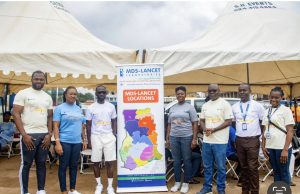The outgoing President of the Ghana Bar Association, Yaw Acheampong Boafo, has called for a revision of the Free Senior High School (SHS) policy to ensure that students from wealthier backgrounds pay fees.
He called for the use of the National Identification Authority data for a means-tested system to prevent the rich from exploiting the system, while fully supporting students from vulnerable and poor backgrounds.
“Students from comfortable backgrounds who attended expensive basic schools must pay fees at the senior high school level so that resources are freed to fully cater for the poor and vulnerable,” Mr Boafo said.
He was speaking last Monday at the Annual Conference of the Ghana Bar Association in the Ashanti Regional capital, Kumasi.
The conference attracted a large number of legal practitioners, the Chief Justice, Justice Gertrude Sackey Torkornoo; the Attorney General and Minister of Justice, Godfred Yeboah Dame, and other ministers of state; the Vice-Chancellor of the Kwame Nkrumah University of Science and Technology (KNUST), Professor Rita Akosua Dickson; clergymen, members of the Council of State, chiefs and queen mothers.
The President, Nana Addo Dankwa Akufo-Addo; the Asantehene, Otumfuo Osei Tutu II, also attended the conference.
Basic education
Mr Boafo highlighted the importance of prioritizing the improvement of basic education, such as eliminating schools under trees and providing sanitary products for girls in need, over-subsidizing secondary education for those who could afford it.
He also referenced recent concerns about the school feeding programme revealed by the Auditor General, calling for a review and improvements to better serve the programme’s intended beneficiaries from poorer backgrounds.
“As a nation, our security is threatened when a chasm develops between the rich and the poor, the urban dweller and the rural dweller,” he said.
Mr Boafo also called on the government and successive governments to implement policies that would improve and make public school education at the basic level both accessible to the poor and marginalised in society while ensuring quality.
“In my opinion, the award of government scholarships should be only what it is, that is, informed by real merit, economic and financial need of beneficiaries, especially those from poor backgrounds, and relevance to specific critical areas of study and research, especially when such critical areas of study and research, particularly in science, technology and research programmes that are not offered by local universities.
“I find it immoral and troubling that government scholarships are given or awarded to persons with political connections and who are already from privileged and rich backgrounds at the expense of brilliant, truly needed individuals and students,” Mr Boafo said.
Source: graphiconline
| Disclaimer: Opinions expressed here are those of the writers and do not reflect those of Peacefmonline.com. Peacefmonline.com accepts no responsibility legal or otherwise for their accuracy of content. Please report any inappropriate content to us, and we will evaluate it as a matter of priority. |
Featured Video















